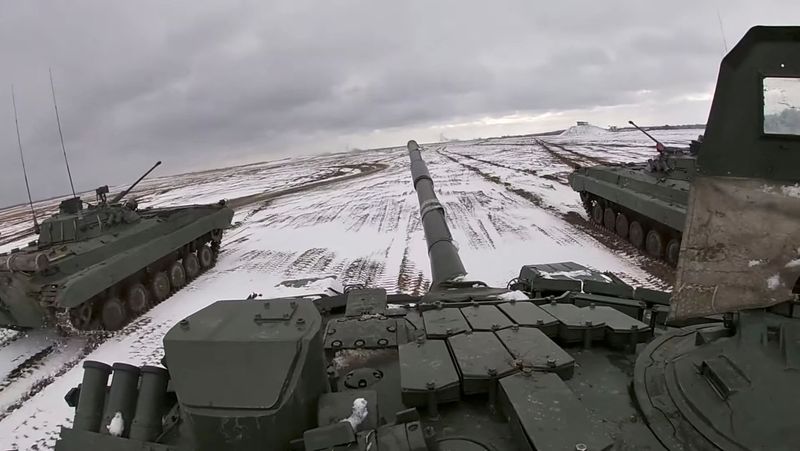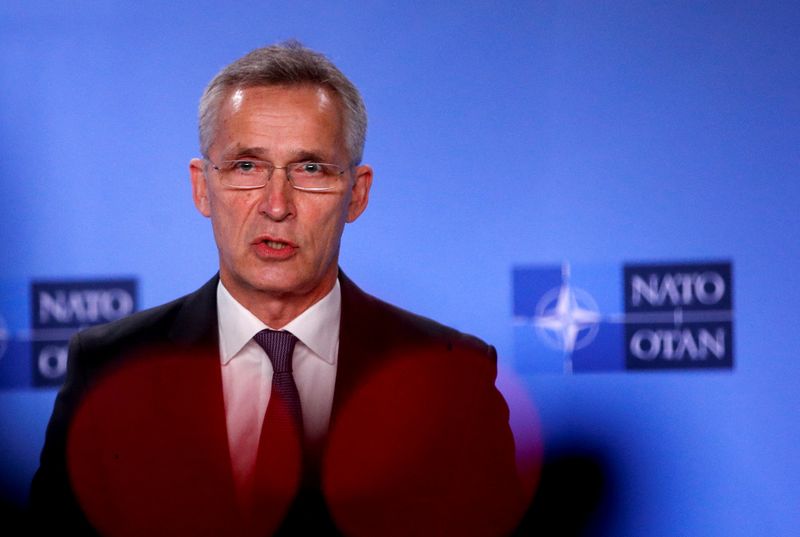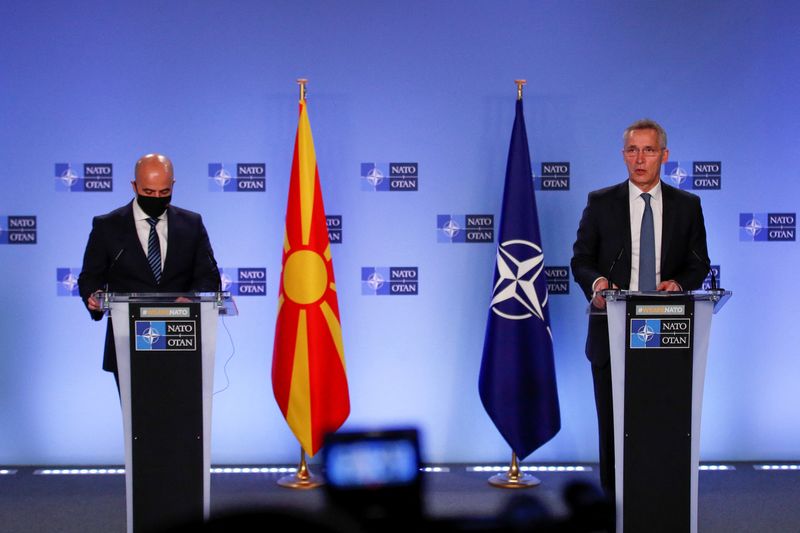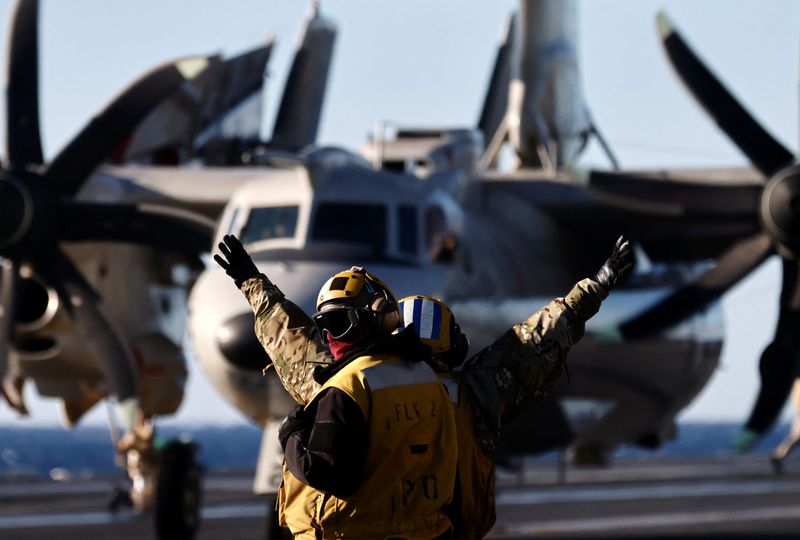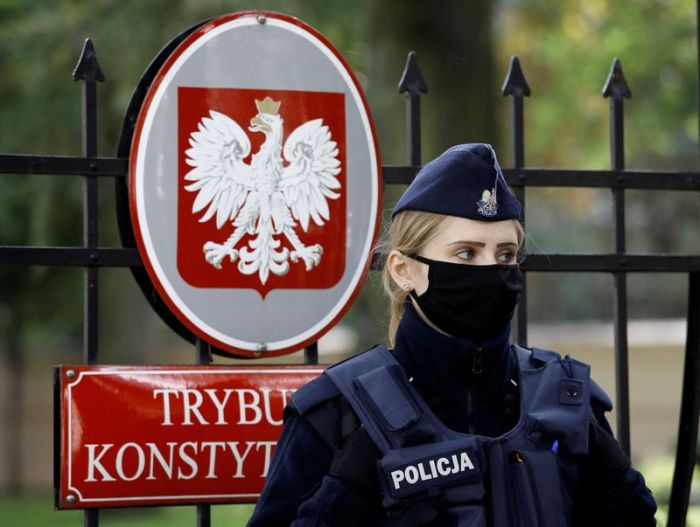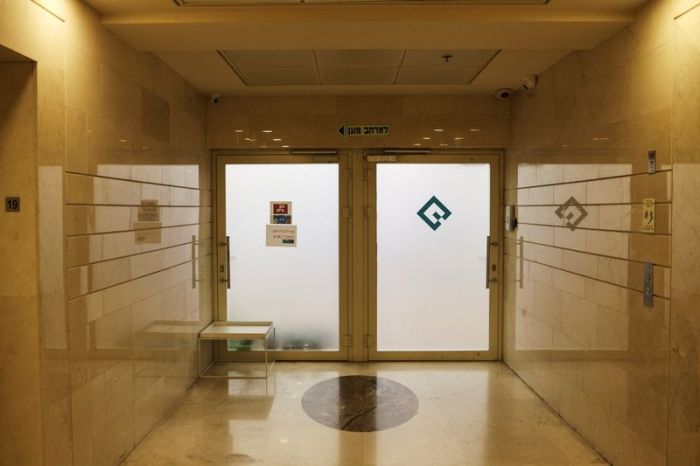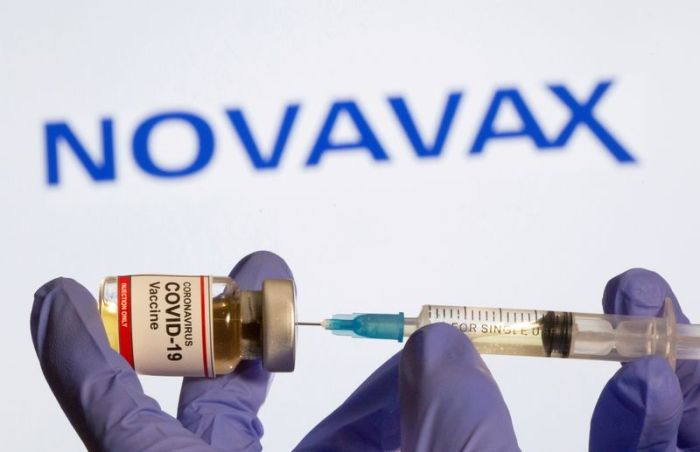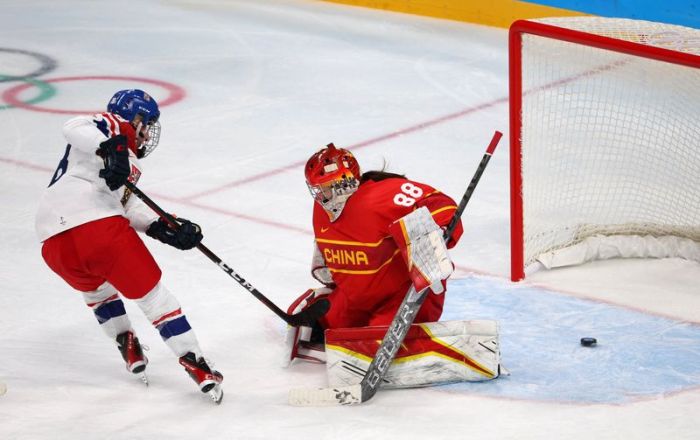WASHINGTON/MOSCOW/KYIV (Reuters) – Russia has formulated several options as an excuse to invade Ukraine, including the potential use of a propaganda video showing a staged attack, the United States said on Thursday, as the Kremlin condemned American troop deployments in the region.
Russia, which seized Crimea from Ukraine in 2014 and backs separatists in the east of the country, is demanding security guarantees including a promise NATO will never admit Kyiv as it has amassed some 100,000 troops near the Ukrainian border.
The United States has said there is little chance of Ukraine joining NATO soon but that the country should decide its own future as the powers clash over their spheres of influence in post-Cold War Europe.
U.S. intelligence believes Russia could use a fabricated video showing the graphic aftermath of an explosion, including equipment appearing to belong to Ukraine or allied nations, to justify an incursion.
It “would involve actors playing mourners for people who are killed in an event that they (Russia) would have created themselves… (and) deployment of corpses to represent bodies purportedly killed,” U.S. Deputy National Security Advisor Jonathan Finer told MSNBC.
Kremlin spokesman Dmitry Peskov dismissed the reports, according to the TASS news agency, saying similar things had been said previously but amounted to nothing.
Moscow has denied accusations in the past that it is trying to manufacture a conflict and says it is not planning an invasion but that it could take unspecified military action if its security demands are not met.
The Kremlin accused Washington on Thursday of ignoring its calls to ease the standoff, a day after the United States announced it would send nearly 3,000 extra troops to Poland and Romania.
“It’s obvious that these are not steps aimed at de-escalating tensions, but on the contrary they are actions that lead to increasing tension,” Peskov said on a conference call on Thursday.
“We constantly call on our American counterparts to stop aggravating tensions on the European continent. Unfortunately, the Americans continue to do so,” he said.
Paratroopers with the U.S. Army boarded aircraft on Thursday to leave for Eastern Europe “in support of assuring our NATO allies and our partners in deterring Russia,” U.S. Army spokesman Matthew Visser said.
The soldiers were departing from Fort Bragg in North Carolina. Around 1,700 service members, mainly from the 82nd Airborne Division, were being deployed to Poland, while 300 others will move to Germany, he said.
Washington and NATO have expresses a readiness to discuss arms control and confidence-building measures. Russian President Vladimir Putin said earlier in the week that Moscow was still interested in dialogue.
RUSSIAN TROOP MOVEMENTS INTO BELARUS
In Brussels, NATO Secretary-General Jens Stoltenberg said there had been a significant movement of Russian military forces into Ukraine’s northern neighbor Belarus in recent days.
The Russia-Belarus joint military drills, running until Feb. 20, have provided Moscow with cover to further increase forces near Ukraine.
“This is the biggest Russian deployment there since the Cold War,” said Stoltenberg, adding the expected deployment includes 30,000 combat troops, Spetsnaz special operations forces, SU-35 fighter jets, S-400 air defence systems and nuclear-capable Iskander missiles.
The Kremlin has described the Allied Resolve exercises as a rehearsal for repelling external aggression and says its forces will withdraw after the drills.
Russian Defence Minister Sergei Shoigu arrived in Belarus on Thursday to inspect the troops.
The Belarusian defence minister released images from the exercises showing troops parachuting to the ground, fighter jets in the sky, soldiers dismounting from a helicopter holding weapons, and tanks firing and manoeuvring.
Belarus shares its western border with NATO members Poland, Lithuania and Latvia, while Ukraine lies to its south.
WORLD LEADERS KEEP TALKING
Support for Russia came from China.
Their two foreign ministers “coordinated their positions” during a meeting in Beijing on Thursday, the Chinese foreign ministry said.
China expressed understanding and support for Russia’s position on security regarding Russia’s relationship with the United States and NATO, it said.
Putin was set to meet Chinese President Xi Jinping on Friday before attending the opening ceremony of the Beijing Winter Olympics.
The U.S. State Department warned Russia that a closer relationship between Moscow and Beijing would not make up for the consequences of an invasion and only make the Russian economy “more brittle.”
Elsewhere, world leaders continued their efforts to resolve the crisis.
In Kyiv, Turkish President Tayyip Erdogan held talks with his Ukrainian counterpart Volodymyr Zelenskiy and offered to host a meeting between Putin and Zelenskiy.
In a move likely to grate with Moscow, Zelenskiy used the meeting to trumpet a deal enabling Ukrainian factories to produce Turkish drones that have already been deployed in Ukraine’s war against Russia-backed rebels in its eastern Donbass region.
In Paris, French President Emmanuel Macron said he and Polish President Andrzej Duda had discussed the possibility of a three-way meeting along with Germany’s Olaf Scholz in coming days on the situation in Ukraine.
European Commission President Ursula von der Leyen called for Russia to return to a path of “peace and dialogue” or face sanctions as the EU worked on a joint response to a letter many of its members received from Russia seeking security guarantees.
(Reporting by Steve Holland in Washington, Dmitry Antonov in Moscow and Pavel Polityuk in Kyiv; Additional reporting by Natalia Zinets, Gabriela Baczynska and Matthias Williams in Kyiv, Rami Ayyub and Trevor Hunnicutt in Washington, Tom Balmforth in Moscow, Kanishka Singh in Bengaluru, Orhan Coskun, Tuvan Gumrukcu, and Ece Toksabay in Ankara, Michel Rose in Paris and Yew Lun Tian in Beijing; Writing by Angus MacSwan, Andrew Heavens, Costas Pitas and Michael Perry; Editing by Gareth Jones, Rosalba O’Brien and; Lincoln Feast.)

